#change hollywood
Explore tagged Tumblr posts
Text

Would 🫵 DARE to take on Hollywood?
What if you knew there was a problem but, not being a part of the culture, you were powerless to bring the REAL CHANGE you knew needed to happen. Until one day, someone taught you how.
Thank you ARIEL EMANUEL - CEO, Endeavor Code of Conduct
0 notes
Text
shirtless drew shirtless drew shirtless drew shirtless drew shirtless drew shirtless drew shirtless drew shirtless drew shirtless drew shirtless drew shirtless drew shirtless drew
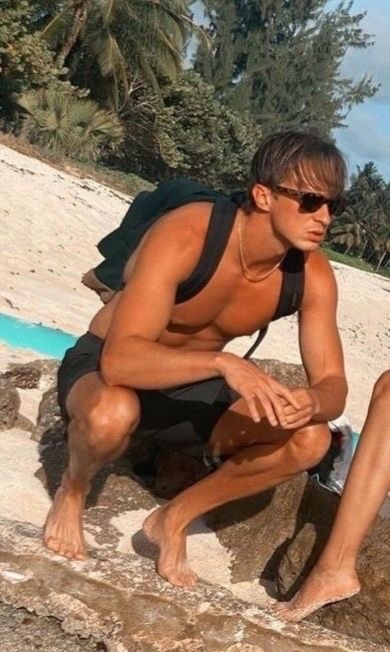
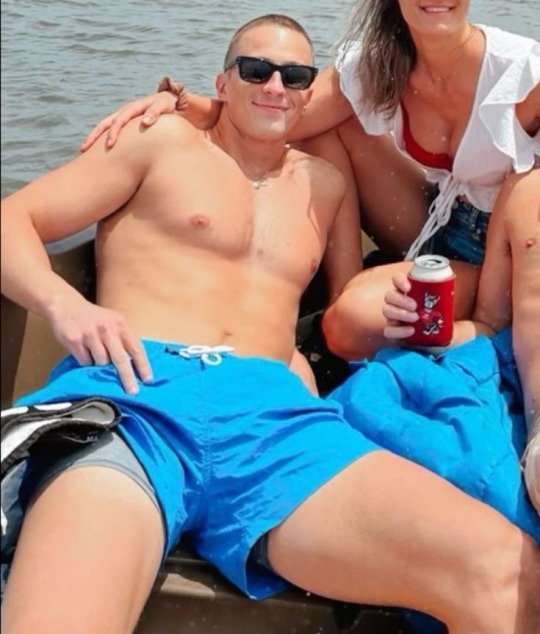
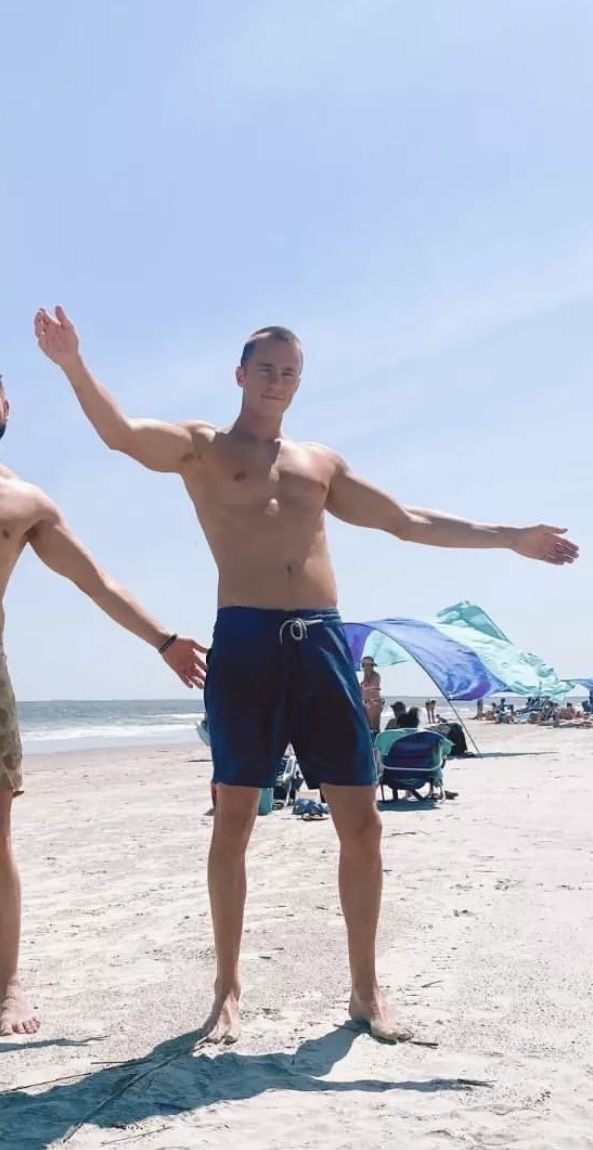
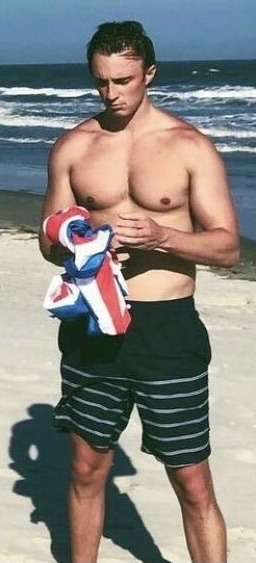
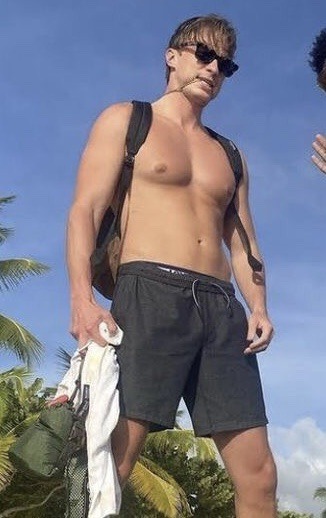
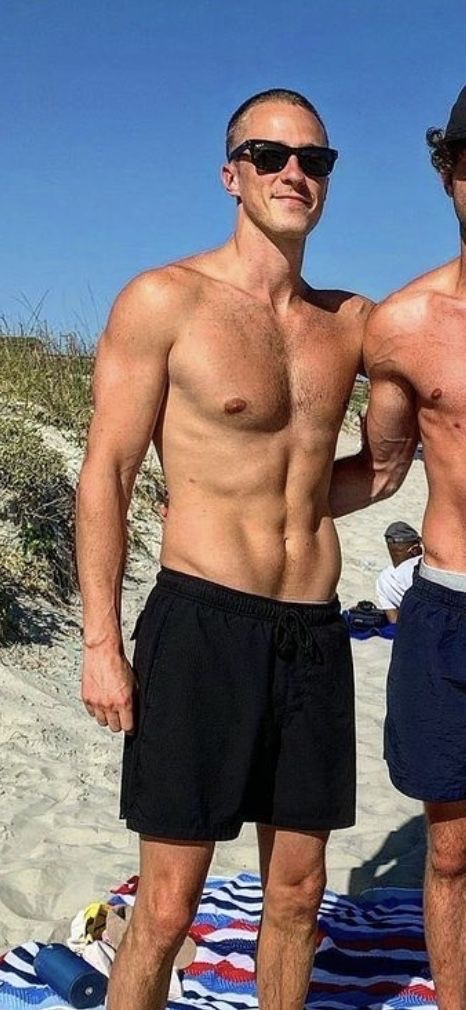
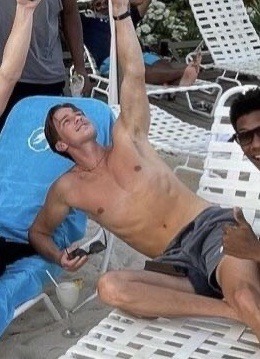

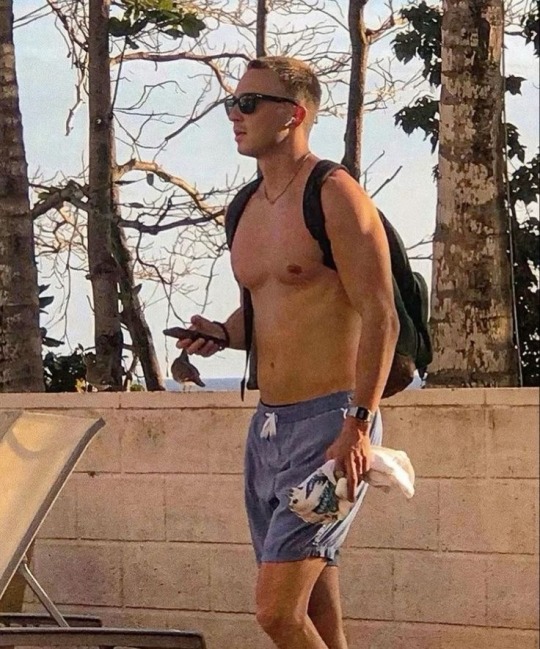
#he’s too gorgous#drew starkey x yn#drew starkey#drew starkey fics#drew starkey x reader#drew starkey fic#rafe cameron#rafe cameron x reader#rafe cameron fics#rafe cameron x y/n#obx#outer banks#if y’all see this I don’t think him changing size is protein or fitness I bet he’s on the Hollywood drugs I’m sorry.#Only real g’s will talk about my last one because no one else seems to ask
3K notes
·
View notes
Text

He tried telling Equestrias lawmakers that electing an unqualified rockstar as prince just because he reached alicornhood was a terrible idea but rules are rules
#also i know there is a canonical mlp hollywood parallel but Applewood is just a lame ass name me and my friends have decided to Change it#my art#worlds worst ponies#chestnut chagrin#rainbow riff#worlds worst comic
617 notes
·
View notes
Text

547 notes
·
View notes
Photo

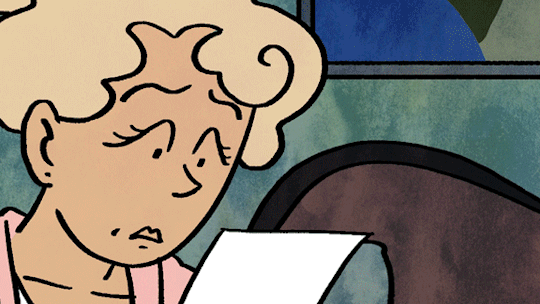

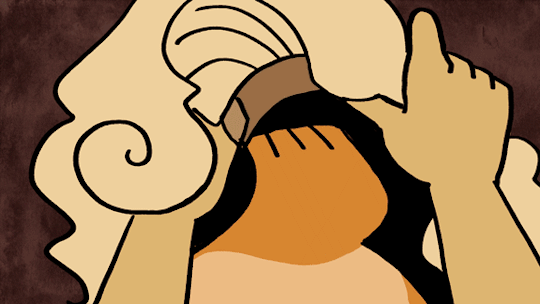



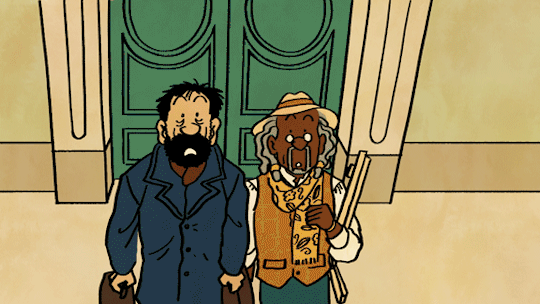
“Robbie is gone! I’m still here! And I refuse to live in his shadow!”
Rastapopoulos himself may be out of the picture, but his ghost continues to haunt those who were caught in his web.
A collaboration with @aboardthescheherazade using her OC Marlene Katz - an actress Tintin tries to save in Cigars of the Pharaoh!
Five years later and Tintin is baffled to see Hollywood starlet Marlene Katz turn up at his doorstep asking for help. Formerly under the thumb of Cosmos Pictures, Marlene became an unsuspecting witness to Rastapopoulos’ criminal activity and now the mob is after her, seeking to tie up some loose ends. To top things off, she is due to make a public appearance at The Golden Palm, a prestigious film festival. After years of hiding, Marlene is determined to get her acting career back on track, and this film may be her big break.
Tintin is highly suspicious. Chang, on the other hand, is utterly star struck, and after noticing an uncanny resemblance between the two hatches a ridiculous scheme that may finally put an end to this particular problem. It might just work, but Marlene makes the last minute decision to also go undercover, feeling immense guilt over having Tintin and Chang risk their lives for her.
While Tintin is running around in heels and beating up mobsters Haddock is away on a weekend break with Ramo Nash. Before leaving he asked Chang to keep Tintin away from any incidents and to promise not to throw any house parties.
This was my first collab on this blog and I had a lot of fun bouncing ideas off with Vaye. Her blog was one of the first Tintin blogs I followed - definitely check it out, it’s an absolute treasure trove of resources and research! Below are a few notes of stuff we discussed while making this:
- After the Blue Lotus, Marlene breaks away from Rastapopoulos and pulls back from the film industry to lay low, teaching dance classes instead. He keeps trying to come back to her, leaving her exhausted and paranoid. Since Rastapopoulos always considered Marlene to be pretty stupid he never made much of an effort to properly hide his criminal activities from her, but Marlene was able to slowly piece things together...
- This adventure takes place after St. Benezet’s Basement (the boarding school story) and before Call of the Songbird (Tintin Fucks Up and Steals A Whistle). Tintin is still in the grips of trauma from the canon stories. Chang is starting to settle in. Haddock and Nash’s relationship is in full swing, but they are keeping things quiet from everyone else.
- In some sketchbook comics I did to flesh out ideas there’s hints of Tintin being gay and asexual, his complete lack of interest in Hollywood actresses and his mild irritation of people’s judgements being clouded by crushes! Chang’s attraction to Marlene however, foreshadows his feelings for Tintin later on down the line.
- There’s a role reversal theme going on here. Both Tintin and Marlene are victims of Rastapopoulos but in very different ways. By playing each others’ roles they both can get a clearer picture of how Rastapopoulos hurt people, and therefore a better understanding of their own traumas. Tintin is usually spontaneous and rarely makes himself known, but here he is playing a set character. Marlene as an actress, on the other hand, is used to receiving direction from others, but circumstance pushes her to improvise. I can imagine her using her skills as an actor to get into character as an ace reporter to fake some much needed bravery!
- Marlene’s disguise is literally just stuff she pulls from Tintin’s and Chang’s closets. She’s wearing Tintin’s trenchcoat, dress shirt and suspenders and Chang’s spectator shoes, trousers and scarf!
- Marlene is a very skittish person but will be compelled to do what she believes is the right thing. As Vaye put it, “Marlene’s bravery under fire is that she’s like the one person in a room who’s willing to get a spider outside...” Marlene is also older than Tintin and pretty much views him as a child, even though he’s in his early 20s at this point. She feels incredibly guilty about what Rastapopoulos did to him and the fact he’s risking his life for her. She feels some level of responsibility for him.
This all started because I thought it would be cool for Tintin to beat some guys up in drag
#tintin#Adventures of Tintin#fanart#animation#2d animation#chang#captain haddock#snowy#milou#ramo nash#marlene katz#gifset#gif#flashing gif#flashing gif cw#the golden palm#old hollywood#my stories#archibald haddock
6K notes
·
View notes
Text
Splashtail and Atheism
Hello. I am an Atheist and I call Splashstar an Atheist because he is based on widespread bigoted depictions of godless people like myself. There have now been several posts about this written as if they're trying to "correct a misconception," and I am tired of vagueposts completely missing the point of the criticism to get caught up on arguing semantics.
The misanthropic, god-hating "Atheist" character in Christian propaganda, which I feel Splashstar has some alarming similarities with, does not come from the writer's correctable "misconception" of irreligious labels. It is born from a hatred of nonbelievers.
Specifically, my point that Splashtail is a mashup of two popular anti-secular tropes common in religious media;
The assertion that there's no such thing as a "real" nonbeliever, and that Atheists are just "rebelling" against God because we're mad at him, want to do bad things without guilt, or have "lost our way."
The belief that morality itself stems from faith in a higher moral being, asserting that the irreligious are "evil" in contrast to the faithful.
Even passing familiarity with the arguments of Christian apologia seen in Chick Tracts, Pureflix films, PragerU videos, and so on, will have put these tropes in front of you. They are false and harmful, and they target Atheists.
For more on this, TVTropes has an entire article dedicated to the Hollywood Atheist and its sub-tropes. Note how many of these Curlfeather and Splashtail fall into, regardless of if you're arguing that they are "real atheists" or not.
Those that hate us do not care about semantic labels. To them, we are without God, A-Theistic, and they do not actually care what is at the core of your beliefs if it contradicts their narrative.
But, even worse, the "Splashtail Can't Be An Atheist" crowd isn't even totally correct on the semantics they're trying to have a pedant battle about.
Most atheistic organizations and online atheists define Atheism as "one who does not believe in God" and attempt to push a sliding scale of "agnosticism" on how hard of a "maybe" you're feeling about your lack of faith. In the sliding agnostic scale, Agnostic Atheists are a "probably no god" and Gnostic Atheists are a "definitely no god." Others describe that scale as "hard" and "soft" Atheism-- but there is NOT universal agreement on that definition.
There other definitions of an "Atheist," and even those who reject the "agnostic scale" completely (I am one of them). "Atheism" was historically the catch-all term for what we might now call "Irreligious," and more.
The Encyclopedia of Philosophy explores its many meanings, and proposes that what defines an Atheist is an active choice to distance oneself from faith; "Someone who rejects the premise of gods either based on lack of belief, or meaninglessness of the question." Matt Dillahunty, a prominent educator and activist, intentionally refers to himself as an Atheist when others (including religious people!) have tried to pressure him into using the label Agnostic, for reasons he covers in great depth. Historically, "atheist" simply meant anyone who denied the gods or acted impiously, evolving into use as a broad label for irreligious practices around the 1500s, until attempts to narrow it to "nonbelievers in deities" in the 1800s.
By EoP's expanded definition alone, Splashstar qualifies as an Atheist. The rejection does not have to come from a belief that Theism is false, but that the question is meaningless. He doesn't have to "believe" in StarClan any more than you have to "believe" in a total stranger. He rejects faith in it and lives without their influence.
But even more than that, "atheist" is a broad, stigmatized term with a history you can't erase. Hundreds of combinations of philosophies, spiritual beliefs, and logical positions have been called "Atheism."
"Atheist" can refer to Agnostics (those who aren't sure if there is a god or not), Antitheists (opposition to the belief in and/or worship of gods), Igtheists (those that feel that "god" is such a nebulous term that the question of belief is meaningless), Apatheists (people who just don't care), practitioners of Non-Deistic religions (such as Humanistic Judaism and some sects of Buddhism), and even heretics who spoke against religion like Diagoras of Melos (gay guy who chopped up a statue of hercules and used it to bake beans. king.)
In a fantasy universe where gods are provably, visibly real, the term "Atheist" is going to look a lot more like those historic and expansive uses.
Unless you want to argue that "atheism" by the narrow, popular definition of "believing in deities" can't exist in such a setting. So, arguing that Cloudtail stopped being an Atheist when he saw demons in OotS, in spite of this not affecting his spiritual practices. Or, dancing around using one uniting term, you could specifically say Curlfeather is a Misotheist, Splashstar is an Antitheist or Agnostic, Mothwing is Deist, etc.
You could have a discussion about how applicable these words even are in the setting. Or make up terms that satisfy yourself. You could do this forever. But I choose not to.
I think it's counterproductive to push people to learn a bunch of terms for hyperspecific branches of irreligious philosophy just to discuss clear anti-secular sentiment within the text of a book, actually. Or push people to abandon a useful word because fantasy isn't exactly the same as real life. Functionally, imo, all of those aforementioned cats are Atheists within this setting, living "without god" by rejecting belief-- and many of them invoke real world bigotry, with tropes much older than WC itself.
So the simple fact is; Calling Splashtail an "Evil Atheist" immediately communicates the narrative tropes I am criticizing.
Either by authorial accident or on purpose, Splashstar's lack of morality being tied to his rejection of StarClan invokes the demonized atheist trope, very much like the ones seen in PureFlix's God's Not Dead or Jack Chick's The Last Generation.
All the arbitrary wishing that the terms were more narrow and exclusive will not change the reality that those characters are intended by bigots as atheists. The terms of the discussion reflect that. Trying to tut-tut the fandom for calling a spade a spade is a smug way to phrase you completely missed the damn point.
#I have seen several of these posts and I finally snapped#Hollywood Atheist is a trope that has been discussed for DECADES of media analysis#If you're gonna try to say that the Strawman Atheist in God's Not Dead is Um Ackshually not even a real atheist 🤓 youre going in the locker#actually wait ur going in the Matilda Chokey because maybe there you will find the point#on a personal level i also find the whole implication that there wouldnt be atheists in a fantasy setting with gods to be disturbing#Nothing about my personal beliefs would change if tomorrow it was revealed that there's a god somewhere#ergo you wouldn't need to change the label that describes me either.#I would still be a ''without gods'' atheist until proven to me that there's anything good that would come from belief in that deity#I guess it's weird to me that others imply that something WOULD change about them.#Splashtail#Splashstar#Atheism#Anyway now I have a sign to tap when this rolls around my dash
251 notes
·
View notes
Text

Sir Ben Kingsley was born Krishna Bhanji but changed his name early in his career. After the change, he noticed a sharp increase in job offers, going from being told, "We don't quite know how to place you," to "When can you start?"
283 notes
·
View notes
Text


full interview
#sadly he’s correct#you have the most basic people getting fame nowadays#but the ones with the most talent and drive are overlooked#so many talents go unseen because they don’t want to give POC a chance#hollywood needs to change on a fundamental level#ALSO when one of your faves is a fan of your other faves#he has good taste#manny jacinto#star wars#the acolyte#hollywood#media#gq magazine
253 notes
·
View notes
Note
Klyntar/symbiote Ben.



Return of BENOM
#*omg i forgot to flip the canvas when doing the third pic-*#if 10 yo Ben named his Loboan transformation Benwolf#(and ONLY changed it when he was older because he didn't want to appear lame)-#then he would SO name his klyntar transformation Benom#i mean that would be implying that the marvel franchise exists in the B10 universe but that's another can of worms haha#(imagine Ben pulling up to hollywood and eddie/venom are real but they're both actors lol)#still kinda iffy on the colors but rendering turned out cool so ITS OKAY!!#ramble over now#thanks for the ask~#q&a#ask#art#digital art#digital painting#fanart#ben 10 fanart#ben 10#ben ten#ben tennyson#ben 10 aliens#marvel#marvel venom#venom symbiote#symbiote suit#end my suffering
288 notes
·
View notes
Text
im honestly still just as wary about the next season of the witcher even after the table read -
because it was never about liam's acting skills.
do i think henry cavill was a spectacular match for geralt?
yeah. but not only because of his looks or his acting: he GOT geralt and the witcher in general. he's a massive nerd who knows the franchise like he wrote it himself and was a big reason (not the sole, but a big one) that the show kept on track and was even somewhat faithful to the original material.
but i don't believe cavill did a regé jean-page and like. left to seek stardom or whatever. this was a passion project too for him, you could tell.
no, I'm wary of the future of witcher because of the higher ups involved.
so what DID the people who disagreed so hard with him he quit the project do? well, they needed a 7000 word letter from joey batey and the fanbase pleading just to allow jaskier to be queer like he (pretty much) canonically is. didn't need incentive from anyone to create fake gay motives for the worse villain of the story, though. didn't need incentive to completely ruin one of the most beloved characters of the franchise, or let his actor get harassed on socials after the swap without ever saying shit.
i do not trust that these people, who have proven callous, arrogant and ignorant about both the source material and the opinions of the fanbase (and have made some choices nearing bigotry) and who disagreed so heavily with the actor who knew the source material best are capable of producing a good season 4. liam or no liam. am i hoping he's a good geralt? yes, the series and other actors don't deserve to have their performance harmed by him. can it be as good as the seasons cavill was in? for the reasons cited above: fuck no.
#the witcher#the witcher netflix#twn#witcher#geralt#henry cavill#liam hemsworth#adding tags because apparently yall cannot be trusted with critical thinking#i dont like henry cavill#but if you think actors read the books their roles are based on i will be making fun of you#i apologise for not having consumed every single piece of interview abt this show#i do that thing where i go outside instead its pretty nice#every single contrary comment is like “well i dont like cavill SO”#ok neither do i?#doesnt change the fact that he did more than a lot of hollywood does (the bar is in hell people bffr)#and that the less power and influence these actors have over lauren and co the absolute fkn worst it is for the show#yall are embarrassing fr
212 notes
·
View notes
Text


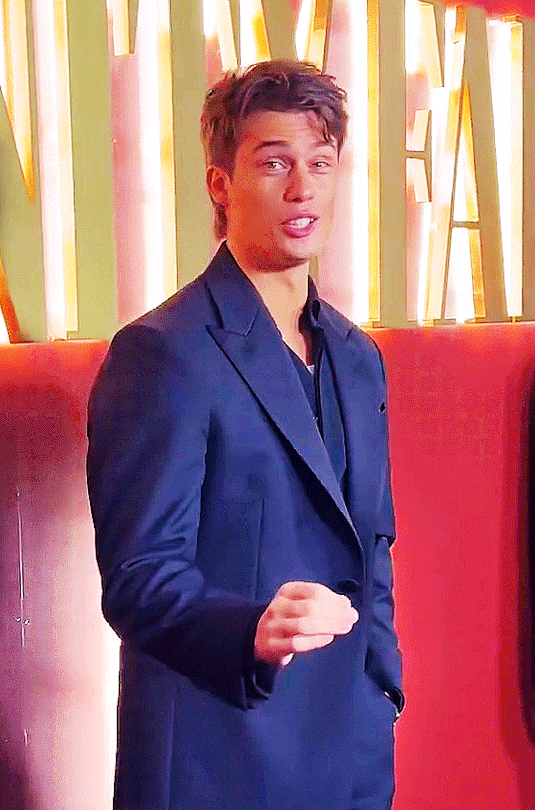
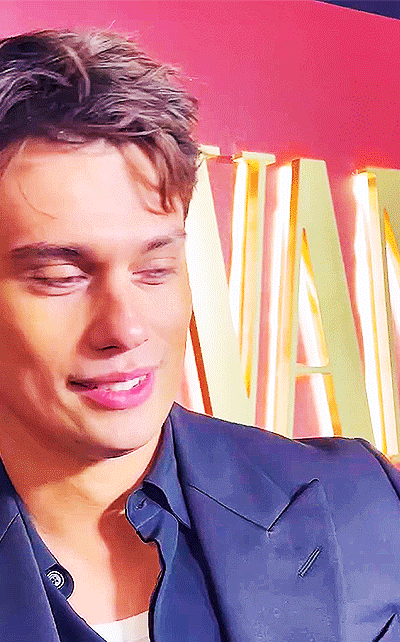
Nicholas Galitzine at the Vanity Fair Young Hollywood in Los Angeles - March 06, 2024
#nicholas galitzine#nick galitzine#vanity fair#vanities#los angeles#young hollywood#my gifs#let's change black to the dark blue
262 notes
·
View notes
Text
0 notes
Text
The Intransigence of Silence
Actor x fem!reader
Reader has a bit of a shy character in this story
Music to listen to for the atmosphere: teacher's pet _Melanie Martinez
Part_1
Part_2. Part_3
Teacher's pet core ?...Ohhh yes ಡ ͜ ʖ ಡ

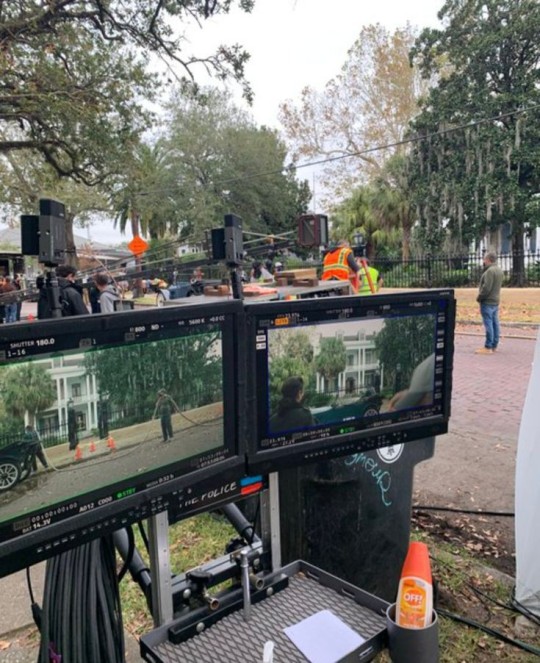
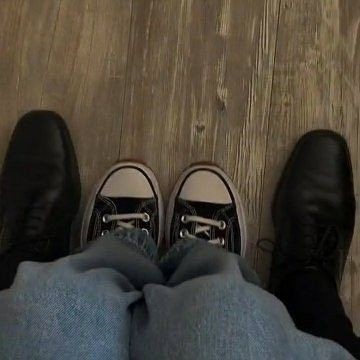

..................................................................................
The autumn wind blew gently through the streets, and the subdued atmosphere of the theater conservatory brought an odd sense of calm to an otherwise noisy world. Y/N, a young actress, was one of the newest recruits at one of the country's most prestigious schools. Yet, in this environment where every move seemed scrutinized, every word weighed, she never truly felt at home. Shy and reserved, she struggled to carve out her place, to make herself visible among peers who were often louder, more confident.
The actor was an icon. His career was a jewel of both cinema and television. Behind his ever-brilliant smile and image of a charming prince lay a cold, unyielding man, whose passion for the craft was intertwined with a deep cynicism toward the industry. He had no patience for artists who sought to conform to superficial expectations. Teaching was a new challenge for him: to pass on what he had learned while keeping his distance, desiring only the raw essence of his students without truly letting them into his world.
The day he met Y/N, he had no intention of being impressed by her presence. She was there, among the other students, yet her energy seemed different. Timid, almost invisible. She didn’t have the audacity to stand out, and yet, he saw something in her—a potential she perhaps didn’t even know she had, or maybe one she was running from.
The first class was an ordeal. The actor made no concessions. His remarks were sharp, devoid of compassion. When Y/N stepped onto the stage for her first performance, his gaze bore into her.
— "You’re not here to look pretty. If you want to act, then act. Be present. Don’t aim for perfection; aim for truth."
She froze, unable to respond. She knew she hadn’t yet found her place, that she didn’t have that "something" he was looking for. But what escaped Y/N’s notice was the intensity of his gaze. He was testing her, provoking her—not to break her, but to draw something authentic out of her.
Days passed, and the actor watched Y/N with a frosty intensity. He gave her increasingly difficult tasks but never praised her. On the contrary, his remarks were cutting.
— "Still too timid. You don’t impress me," he would say, almost as if daring her. He pushed her further and further, forcing her to confront her own boundaries. But she couldn’t understand why he was so harsh. Why wouldn’t he just let her be?
One evening, after an especially long rehearsal, when everyone else had left, the actor found her alone in the empty theater. Y/N was still rehearsing, murmuring her lines as if the world around her didn’t exist. He paused at the entrance, silently observing her before finally approaching.
— "You have talent. That’s not the problem," he said at last, his voice cold but firm. "The problem is that you’re hiding that talent behind your fears."
He looked at her for a moment, as though waiting for a reaction, but she gave none.
— "If you want to be a real actress, you need to shed those chains—those little voices telling you you’re not good enough."
Her heart raced. His words hit harder than any critique. He spoke about her as if her doubts were plain to see, as if everyone knew, everyone could tell. But there was no comfort in his voice, only a stark observation, a demand.
She lowered her gaze, unsure of what to say. Yet, despite the harshness of his words, she felt both shattered and motivated. He wasn’t trying to crush her; he wanted her to wake up, to stop hiding. But he remained distant, offering no easy answers. This was a trial, not a helping hand.
In the weeks that followed, Y/N felt his gaze on her more intensely. He kept pushing her, challenging her at every turn. He observed her but never offered a word of comfort. Every comment, every look he gave her seemed to say she still wasn’t doing enough.
— "You need to stop trying to be liked," he told her one day. "That’s not what acting is. Acting is going beyond, into the invisible, into the uncomfortable."
She wrestled with her emotions. On one hand, she felt a certain gratitude toward him. He was right—she couldn’t keep hiding behind her timidity, her fear of falling short. But on the other hand, she found herself inexplicably drawn to him in a way she couldn’t explain. He watched her with an intensity she had never experienced before. But his attention was icy, distant, as if the goal was to push her to surpass herself, not to encourage her success.
One day, after a particularly difficult scene, Y/N broke down in tears. The actor, watching her with a cold expression, approached without a word. He made no attempt to console her.
— "Still too much doubt," he said simply. "Do you think crying makes you more human? It only makes you look weaker."
It wasn’t cruelty; it was raw truth. And it hurt.
But through the pain, something shifted within Y/N. She finally understood. He hadn’t abandoned her; he had forced her to rise. Every comment, every cutting observation, had been meant to push her to a place she never imagined she could reach. He wasn’t a gentle or kind mentor, but a relentless force driving her past her limits.
He never spoke of her progress or offered her compliments. But one evening, as they rehearsed alone in the empty theater, he turned to her, his dark eyes fixed on hers.
— "Do you want to know why I push you so hard?" he asked. "Because I see that you still don’t understand that art isn’t about comfort. It’s a battle."
And for the first time, Y/N felt truly seen, even without comforting words. She had become stronger, but she hadn’t changed who she was. The actor had broken her down to rebuild her, and in a strange way, that brought her closer to him, even if he remained a cold and enigmatic presence.
---
The days passed in a rhythm of endless rehearsals and the actor’s sharp remarks. With every session, Y/N felt more lost yet more determined. She wanted to earn his respect, but she no longer knew how. His critiques, though harsh, pushed her to go beyond her limits. Yet every word, every gesture seemed to push her further away from him, as if an invisible barrier stood between them.
Despite this, she knew that somewhere deep down, he believed in her. But he never let any warmth or support show. There was no comfort, no kind gestures or encouraging words—only expectations that grew heavier with each passing day. And yet, something about him drew her toward him. There was no flirtation, no obvious signs. But whenever they found themselves alone for rehearsals, a silent tension lingered between them—a kind of unspoken challenge, as though she was trying to understand him while he kept her at arm's length.
One day, after a long day of filming, as she was packing up her things in the dressing room, she saw the actor stop in the doorway, as if hesitating. He stepped inside without a word, his imposing figure framed by the shadows of the room.
“Y/N,” he said, his voice low but firm, as always. “I watched your scene again. It’s not enough. You let yourself go. This isn’t a role you play. It’s a life you live.”
She turned slowly, feeling her heart race. He was staring at her without blinking, as if waiting for a reaction. She still addressed him formally, and he seemed to appreciate that sense of distance, as if it shielded him from the emotions she never allowed herself to show.
“I... I understand, sir,” she replied timidly, though with a growing determination. “I’ll work harder.”
He didn’t reply immediately, and for a moment, he didn’t take his eyes off her. The air between them felt charged with a strange intensity. The actor, usually so in control of his emotions, had something undefined in his gaze—an internal conflict he refused to share. Finally, he nodded slowly, a gesture of acknowledgment but without comfort.
“You need to be more than this role,” he said almost in a whisper. “Be more than what you think you are.”
He turned to leave but paused just before stepping out the door. His eyes lingered on her for a moment, as if he’d caught a glimpse of vulnerability in her. But he didn’t dwell on it. “Tomorrow, rehearse thoroughly. I’ll be there to correct you,” he added without emotion.
Y/N watched him leave, her heart heavy. She didn’t know why his words affected her so deeply. Maybe it was because he spoke truths she didn’t want to hear but knew to be real. She wanted to be more than this role. She knew that deep down. But the task felt insurmountable.
The next day, during rehearsal, he was there as promised. The actor watched her enter the room with his piercing gaze. This time, however, there was no harsh speech, no immediate reproach—just a cold, analytical stare.
“Start,” he ordered in a clipped tone.
Y/N, her body tense, moved to the center of the room and began. This time, she gave her all, shedding her hesitations. She wasn’t thinking about him or his relentless critiques but about the scene, about the essence of the character. She wasn’t Y/N anymore—she was the actress, the soul of the role, losing herself in the performance. Yet even in her complete immersion, she couldn’t ignore his presence. He was there, motionless, watching her with an inscrutable expression.
When the scene ended, he didn’t speak for a moment, which made her nervous. Slowly, he walked toward her.
“Much better,” he said at last. But there was something in his tone—a subtle nuance she hadn’t heard before. A mix of satisfaction and restraint.
“But it’s not enough,” he added. “Do it again.”
This time, he didn’t move closer. He stayed at a distance, watching her from afar. A chill ran through her. Was that a veiled compliment? Or just another cold observation? She couldn’t tell.
The rehearsals continued, and a strange dynamic began to take shape between them. She realized that every time he was there, her focus sharpened. There was no room for hesitation, no space for fear. She was becoming the actress he demanded, but at what cost? Sometimes, the line between fear and respect blurred.
One day, while they were alone in the room after yet another grueling rehearsal, the actor suddenly turned to her. “You’re changing,” he said without preamble, as if it were obvious. “But don’t forget why you’re doing this. It’s not just to land a role. It’s for your own truth. Don’t lose yourself.”
Y/N, her breath shallow, lowered her eyes. His words resonated within her with an intensity she couldn’t quite grasp. The actor remained as distant as ever, but with every interaction, she felt there was something more beneath the surface. A kind of interest—not in her as a person, but in what she was becoming because of him. An interest that was unreadable, yet powerful enough to push her further, always further. But never past the silent boundary between mentor and protégé.
She straightened, forcing herself to meet his gaze. “I won’t disappoint you, sir.”
He held her gaze for a moment, his dark eyes gleaming with an emotion he never allowed to surface. Then, without another word, he turned and walked away as always, leaving behind a lingering warmth in the air—a mystery she might never unravel.
---
Weeks had passed, and with each rehearsal, the atmosphere between Y/N and the actor grew denser, almost tangible. Y/N strived to follow every directive with precision, taking note of his every word, but she never truly understood where it all was leading. The actor, for his part, continued to push her, never offering any sign of approval. He shaped her like a sculptor shapes a statue, but without the slightest hint of tenderness. There was something almost inhuman in the way he treated her: on one hand, he gave her relentless attention, but on the other, he kept her at a distance, as if she were merely a tool for achieving a greater purpose—a masterpiece to be perfected.
Y/N no longer knew where she stood. Every time he gave her a role, a scene to rehearse, she threw herself into it without restraint, as if she had something to prove. But deep down, she constantly wondered: why her? Why this relentless effort? At times, she felt closer to him than anyone else, and at others, he seemed like a distant figure—a demanding master she could never fully understand.
One evening, after an especially grueling day of rehearsals, she wandered the corridors of the conservatory, her thoughts in turmoil. She had never seen the actor so silent, so detached, and it troubled her more than she wanted to admit. It felt as if he was ready to abandon her, to let her drown in her own doubts.
As she walked through a dimly lit hallway, she saw him. He stood near the door of the theater room, arms crossed, as though he had been waiting for her. He still had that intense, cold gaze—a gaze with a depth that fascinated her despite herself.
“You’re not satisfied with your performance, are you?” he asked in a calm, almost icy tone.
Y/N stopped a few steps away from him. She lowered her eyes before responding, not wanting to appear more vulnerable than she already felt. “I... I’m not sure, sir. Maybe I’m still making mistakes.”
He nodded slowly. “Mistakes, yes. But necessary ones,” he added, his tone neutral. “You can’t move forward without making them. And you need to accept that.”
A shiver ran down her spine. Why was his tone becoming more distant? She felt as though he was simultaneously pushing her to excel and to lose herself. He scrutinized her as if he could see beyond her timid exterior, as if every move he made was designed to turn her into a stronger, more relentless actress.
“Why... why do you push me so hard?” she finally asked, breaking the silence between them. “Why won’t you just let me express myself?”
He stared at her for a long moment before answering, his gaze piercing like a beam of light cutting through the darkness of the room.
“Because you don’t know yet what you’re capable of,” he said in a low, almost inaudible voice. “Because you’re so desperate to be accepted that you hide behind roles, masks, rehearsed lines. But that’s not what I’m looking for. I’m looking for what makes you vibrate, what burns inside you—what you’re still refusing to show.”
Y/N felt trapped by his words. Each sentence was like a challenge she had to overcome, a mountain she had to climb without the luxury of making mistakes. He seemed to know her better than she knew herself, and that terrified her.
“I... I don’t know if I can do it,” she whispered, her voice breaking with uncertainty.
He didn’t respond immediately but looked at her with a calculating expression, as though waiting for her to find her own truth. After a heavy silence, he stepped slightly closer.
“You don’t need to know if you’ll succeed. That’s the beauty of art. There are no certainties. Only the constant pursuit. And the pain of never being satisfied with yourself,” he said with a cold, almost wise tone. “But trust me—if you stop clinging to what’s comfortable, you’ll eventually find the part of you you’ve always been hiding.”
She didn’t reply. She didn’t know what to say. His words echoed in her mind, both a challenge and an invitation. Why did she feel like he wasn’t just pushing her to become a better actress? There was something more.
“Go rehearse. I’ll be here tomorrow,” the actor said as he turned away, as if he’d just finished a casual conversation. But he didn’t look back. Y/N remained there, frozen, her heart pounding in her chest, as though the weight of his expectations bore down on her shoulders. It wasn’t encouragement, but it had a destabilizing effect on her. He was right. She hadn’t yet found what she was searching for.
The next morning, during rehearsals, she once again felt the invisible pressure emanating from him. With every movement, every line, the actor watched her without blinking. He was still as distant as ever, but every adjustment he made to her performance pushed her further out of her comfort zone. Every minute spent under his unyielding gaze made her stronger—but also more fragile.
After a particularly difficult scene, where Y/N, on the verge of a breakdown, nearly collapsed, the actor paused for a moment and gave her an intense look. She waited, almost silently, for his verdict.
“You did well,” he said, his cold tone contrasting with the effort she had just poured into the scene. But there were no congratulations. No smile. Just a matter-of-fact statement.
She lowered her eyes, barely taking the time to process his words. He still hadn’t told her what he truly thought of her, of her progress. Nothing more than endless challenges and constant expectations.
“I know you expect more from me,” she murmured, almost despairingly.
He looked at her, his eyes seeming to analyze every part of her being. He wasn’t the type to offer comforting words. Yet in the silence that followed, there was a shared truth: he offered no easiness, no emotional support, but he was shaping her. Slowly, she realized he wasn’t pushing her just for the art—but for what she was becoming, for the strength she could build through every trial.
She had no choice but to keep going, to accept his cold and uncompromising methods. This was his truth, and Y/N was ready to search for it—even if she didn’t yet understand everything he expected of her.
---
Y/N was at her limit. Every day spent under the actor’s relentless guidance had pushed her further, eroding every shred of confidence she had in herself. His critiques, though measured, left no room for error. He showed no leniency, no satisfaction—always ready to take her to the edge of the precipice.
She might have been able to endure this pressure if she still believed in something. But she no longer believed in anything—not her talent, not her choices, not even him. And the rumors didn’t help. The whispers, the lingering glances as she passed through the studio, the half-muttered comments: "She’s special to him," "He favors her for some other reason." Y/N heard them, even if no one dared say them to her face.
One evening, alone in her cramped apartment, she broke. Everything seemed to collapse around her. The thought of quitting suddenly seemed appealing. More than that: a release.
The next day, Y/N arrived at the studio, her thoughts heavy but her decision burning in her mind. This would be her last day. She couldn’t take it anymore. During rehearsal, her movements were mechanical, her lines devoid of life. Her gaze remained lowered, as if she wanted to disappear.
The actor, who observed every detail, abruptly stopped the scene.
“Stop,” he said coldly. “Y/N.”
She lifted her head, but her face was closed off, her eyes dull.
“You can continue without me,” she said suddenly. Her voice trembled slightly, but she remained firm. “I’m leaving this project.”
The room collectively held its breath. No one dared intervene. The actor, meanwhile, stared at Y/N, a flash of disbelief crossing his face. But it was his icy tone that sent a chill through the room.
“You think you can just walk away? After everything you’ve invested here?”
Y/N felt a surge of anger. She replied, her voice cracking with emotion:
“Everything I’ve invested? You mean everything you’ve taken from me. You’ve used me, pushed me to my limits, and for what? To satisfy your need for perfection? I’m not your toy, sir!”
The silence that followed was heavy. The other actors exchanged nervous glances. The actor, motionless, seemed to weigh his words. Then, he abruptly turned to the others.
“Leave.”
Once they were alone, the actor slowly approached Y/N. He was calm, but his gaze burned with intensity.
“You think I’m using you?” he said, his voice sharp. “You think everything I do, everything I say, is for my own pleasure?”
Y/N stared at him, silent tears streaming down her cheeks. “Yes,” she whispered. “That’s how it feels. You push me, but you don’t see me. Not really.”
Those words seemed to strike him. He stopped, his shoulders lowering slightly as if an invisible weight had settled on him.
“And you, Y/N,” he finally said, “do you see yourself?”
She remained silent, caught off guard. He continued, his tone softer but still charged with intensity:
“Do you think I’m harsh because I enjoy it? I’m harsh because you have something I can’t ignore. Something you refuse to see. If I push you, it’s because I want you to find it. Not for me. For you.”
His words hurt because, deep down, she knew he was right. But it didn’t erase the pain she felt, the loneliness he had allowed to grow inside her.
“And at what cost?” she asked, her voice breaking. “If I have to lose everything to reach what you see, is it worth it?”
He was silent for a moment, his gaze locked on hers. Then, in a quieter, almost vulnerable voice, he replied:
“I won’t let you lose everything. But if you stop now, you’ll never know what you’re capable of. And that, Y/N, is a loss I can’t accept.”
Y/N spent that night thinking. The actor hadn’t tried to hold her back with promises or apologies. He had left the choice to her. And that choice weighed heavily on her.
When she returned to the studio the next day, he was there, as if he knew she would come back. He didn’t say a word to her, but his gaze was different: less harsh, less impenetrable.
Rehearsal resumed, and he pushed her again, but there was a new subtlety in his methods. When she succeeded in a particularly challenging scene, he gave a barely perceptible nod. That simple gesture was worth more than any speech.
Y/N didn’t know if she could continue indefinitely. But for now, she had chosen to stay. Because despite everything, deep down, she wanted to prove to the actor—and to herself—that he was right.
---
Y/N had made a decision in the quiet of her own mind. After weeks under the relentless guidance of the actor, she needed to prove—not to him, but to herself—that she could stand on her own. It was an almost desperate impulse, a vital need to reclaim her identity.
Without telling anyone, she auditioned for a minor role in a low-budget historical drama. It wasn’t much—just a few lines in three scenes. But that role meant so much more to Y/N. It was proof that she could find her place, that she could be seen for her talent and not because she was the favored student of a renowned actor.
When she got the call confirming she had landed the role, a rare feeling of triumph washed over her. For the first time in a long while, she felt free.
The news eventually reached the actor. He heard it from a colleague, a director he frequently collaborated with.
"Your student, Y/N, got a role in The Weight of the Crown. You should be proud of her," the director said casually.
The actor froze. The information hit him like a blow. She hadn’t said anything. She had acted behind his back. His jaw clenched, and a quiet anger rose within him. It wasn’t betrayal—he knew that—but it sparked a frustration he couldn’t name.
When he saw her arrive at the studio that day, he didn’t wait. He approached her quickly, his expression dark.
"You auditioned for a drama," he said without preamble, his tone sharper than he intended.
Y/N looked up, surprised, but she remained calm. "Yes, sir," she said softly. "I wanted to try something on my own."
"On your own?" he repeated, almost mocking. "Do you think you’re ready for that? Do you think appearing in a drama without being fully prepared will help you?" He paused, his voice dropping but growing harsher. "You didn’t even tell me."
"Because I knew you’d react like this," Y/N replied, her voice trembling slightly. "I knew you’d tell me I’m not ready. But it’s not your decision, sir. It’s mine."
This unexpected boldness caught him off guard. But instead of responding, he took a slow breath, trying to regain control of his emotions.
"Cancel the role," he said finally, every word heavy.
Y/N stared at him, incredulous. "Excuse me?"
"You heard me," he replied, his eyes fixed on hers. "You’re not ready. That role could destroy you more than it helps you. You need to withdraw."
Y/N said nothing. She lowered her eyes, holding back her emotions. But deep down, a quiet anger was rising. She was tired of being treated like a child incapable of making her own decisions. Yet, she obeyed.
A few days later, she informed the director that she was withdrawing from the project. Her voice trembled, but she didn’t want to explain her reasons. She hung up, her heart heavy, and felt empty.
That evening, as the studio emptied, Y/N stayed behind to rehearse alone. She needed to keep her mind occupied. As she recited her lines, her voice rose in the silence, rough with emotion. She collapsed onto the stage, unable to continue.
When the actor entered the room, she didn’t notice him at first. He lingered in the shadows for a moment, watching her. Guilt gnawed at him, but he didn’t know how to express it.
"Why are you still here?" he asked abruptly, breaking the silence.
Y/N jumped, looking up. "I... I wanted to practice."
He approached, his steps measured, and sat on the edge of the stage, his gaze fixed on her. "I asked you to withdraw from that project to protect you," he said softly, his voice losing its edge. "Not to break you."
"Then why do I feel like that’s exactly what you’ve done?" Y/N murmured, her eyes glistening with tears. "I just wanted... to try. Even if I failed."
The actor looked at her, and for a moment, he seemed to hesitate. Then, without thinking, he reached out and gently touched her wrist—a rare gesture of tenderness from him.
"Y/N," he murmured, his voice almost hoarse, "I don’t want you to fail. Not because you’re not ready, but because I... I don’t want to see you get lost in this harsh world before you’re strong enough."
That unexpected touch broke something inside her. Y/N gently pulled her hand away, but the weight of his words hung between them.
"And what if I don’t want your protection anymore?" she murmured. "What if I just want... to be seen for who I am?"
He remained silent, unable to respond. The tension between them, usually cold and disciplined, had shifted. It had become palpable, almost suffocating. And this time, it was Y/N who let the boundaries blur.
She straightened, slowly moving closer to him. Her gaze, hesitant but determined, met his. She opened her mouth to speak, but no words came out. Then, in a moment she didn’t fully understand herself, she placed a light hand on his arm.
"Thank you," she finally murmured, before leaving the room, leaving him alone with his own inner turmoil.
The days that followed were marked by a silent tension. The actor was more distant than ever, avoiding any prolonged contact with Y/N. But every interaction, no matter how brief, carried an emotional weight they couldn’t ignore.
For her part, Y/N felt increasingly lost. She continued to work hard, but her mind was haunted by the confrontation, by the moment she had crossed a line she had sworn never to cross.
And the actor… He was conflicted. He knew he had to maintain the distance. But every time he met her gaze, he wondered how much longer he could ignore what he truly felt.
..................................................................................

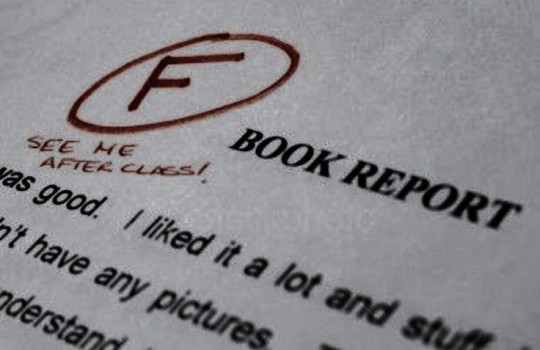
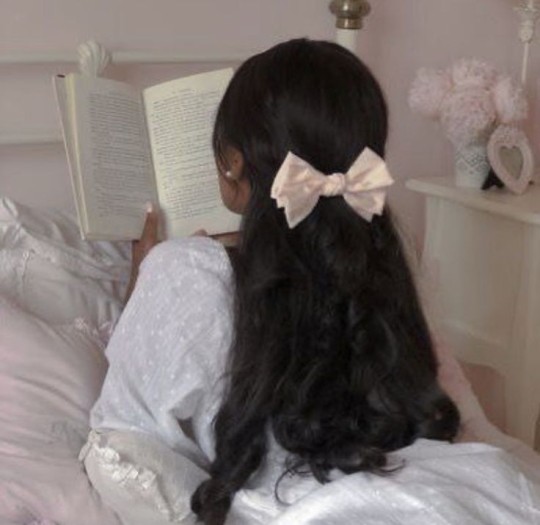
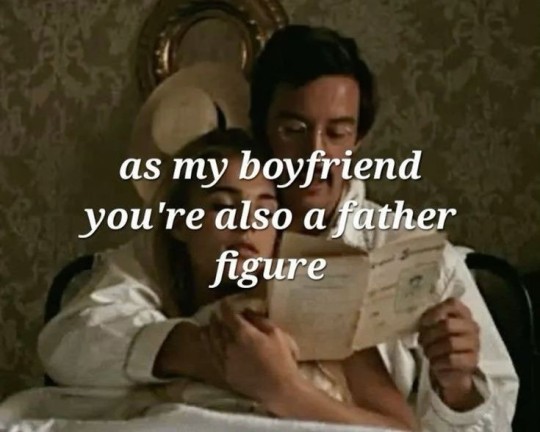
#kdrama fic#ji chang wook#kactor#actor#kdrama#movies#ji chang wook x reade#matthew gray gubler x reader#matthew gray gubler#mgg#mgg x reader#mgg x y/n#aaron pierre#aaron pierre x black reader#aaron pierre x reader#keith powers#Keith power x reader#actor x reader#hollywood#teacher's pet#celebrity#celebrity x reader#fem reader#female reader#yandere actor#korean actor#actor x actress reader#yandere actor x reader#Spotify
50 notes
·
View notes
Text
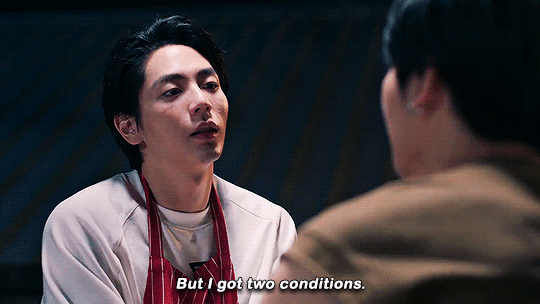
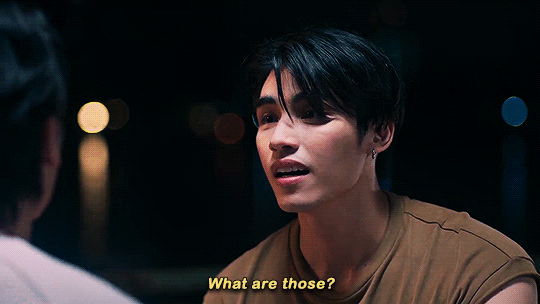
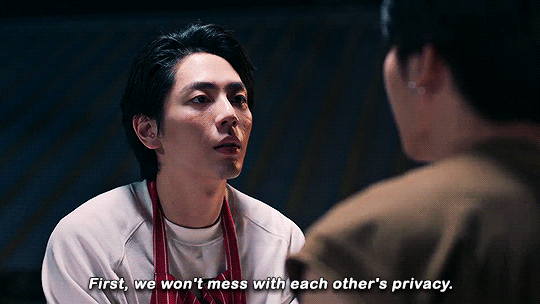
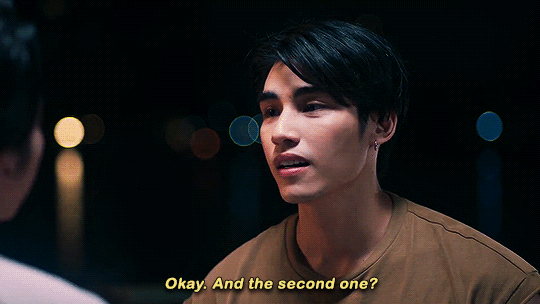
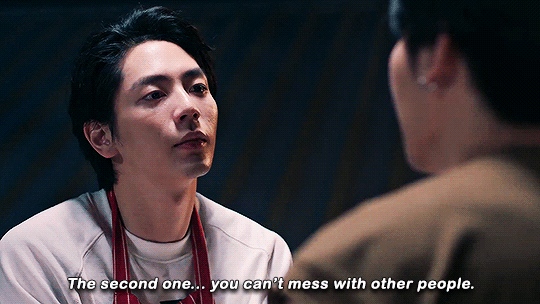
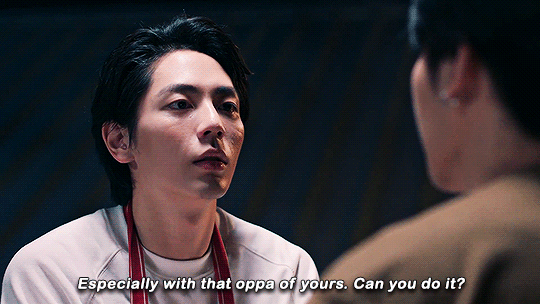
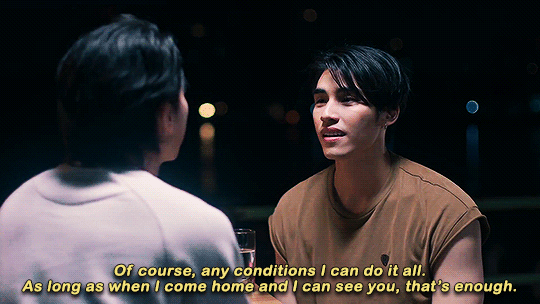
Are you really moving in with me? Huh, for real?
MY STAND-IN (2024) | 1.02
#up poompat#poom phuripan#my stand in the series#my stand in#userbunn#userrain#usersasa#userjamiec#tobelle#msiep2#usertoptaps#tuseralexa#userjap#my stand-in#my stand-in the series#clairedgifs#msiedit#thaidrama#when ming said esp w that oppa of yours oh i laughed real hard#god bless the thai team for changing sol from being a hollywood star to a korean idol
205 notes
·
View notes
Text




#News#hollywood#climate change#poems#family guy#democrats#republicans#politics#woc#books#donald trump#Gaza#free palestine#israel#buddhism#Art
398 notes
·
View notes
Text

umm decided to post him there too :D
#phil collen#def leppard#def leppard fanart#art#phil collen fanart#drawing#girl era phil is soooo underrated change my mind#80s rock#the hollywood tease video is living in my head rent free sos#mine
85 notes
·
View notes